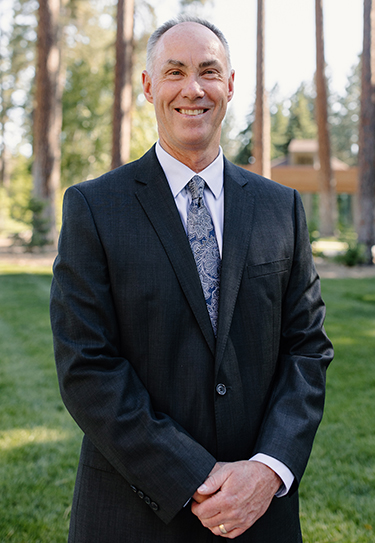President's Message

I’m writing this six weeks after giving a baccalaureate charge to our graduating students and eight weeks before welcoming a new group of students who, in just a few years, will receive a similar charge about the ways in which they might honor God, follow Christ and serve humanity. The time seems to pass quickly between Move-In and Commencement Weekends, years during which you shape our students in immeasurable ways. Thank you for taking on the noble calling of professor. I am already looking forward to meeting our first-year students and painting a picture for them about what lies ahead in their Whitworth experience. And I anticipate seeing you all again in late August.
About what I’ve written here: Don’t look for a common thread. You won’t find one. But you will find a bit of you, a bit of us and a bit of me in these thoughts. With the encouragement of the board, I pieced together several consecutive weeks away from campus in June and July. At the outset, I asked Janice to recommend a few novels, ones that touched upon faith, even if only a smidgeon. The list included Virgil Wander by Leif Enger and Ordinary Grace by William Kent Krueger. In all that could be shared and discussed, I’ll speak to two things: first, a single sentence from Enger, the other a broader theme from Krueger, that, for me, speaks to the “you” and the “us” of the Whitworth community.
The “you”: Virgil Wander, owner of a failing local movie theater, county clerk and survivor of having driven his car over a steep embankment into Lake Superior (costing him a concussion and the loss of adjectives), is approached by local handyman Jerry Vandeen. Failure after failure, personal and professional, have earned Jerry the judgment of the Greenstone community. Over the years, Jerry had forgotten the best version of himself, as had others. But now, he has an opportunity for a steady job and a fresh start. If only he had the necessary carpentry tools that would allow him to complete the jobs well and correctly. Perhaps, Virgil wondered, with the provision of tools he possessed, Jerry might then begin to remember himself, and others might then, too. And so Virgil did, willingly and sacrificially gifting what he owned. Our students (maybe us, too, in our own ways?), need to be reminded at times about who they are and the qualities they possess – as learners, as future professionals, as children of God. I am grateful for the intellectual, social and character-forming tool kits you provide our students, helping them to better remember, and claim, who they are. And often, sacrificially so.
The “us”: Set in 1961 in the town of Bremner, Minn., 13-year-old Frank Drum is the son of a pastor and a creative mother, and the sibling of two. In a story about faith and forgiveness, narrated by the much older Frank, the author said that he was well into writing the manuscript when he realized he was writing a novel about the ordinary blessings we offer one another in our daily lives. Those offerings, he concluded – ordinary graces – require our awareness and willingness to impart. Blessed graces often make for beautiful moments in the ordinary moments of our lives, perhaps even in times of profound loss. Frank narrated this about a particular encounter: “That was it. That was all of it. A grace so ordinary there was no reason at all to remember it. Yet I have never across the forty years since it was spoken forgotten a single word.” Over my four Whitworth decades, I know something about the receiving end of ordinary graces, and from so many of you. They are not forgotten. I hope you have similar memories, too. Those graces extended, owing to an awareness of whatever personal and professional heartaches exist, in heaps of doses, make for an uncommon place. In the year ahead, may we watch for ordinary graces, blessed moments in the routine, ones that may never be forgotten, especially by our students.
The “me”: I hope you’ll carve out time to attend the State of the University Address and all-community lunch to follow. We’ll hear an admissions update, a report about the work advanced on brand positioning, achievements from the past academic year, and my presentation on a wide array of campus areas – realities, advances, work to be done. There is a lot to cover. I’ve also been thinking about my fall convocation address. Meredith Shimizu has helped me to better understand how and why artists painted themselves into their own works of art, and therefore shape what I wish to say to our students: how they might paint themselves into the Whitworth picture while they are here.
May the remaining summer weeks provide for rest, restoration and fun.
Scott